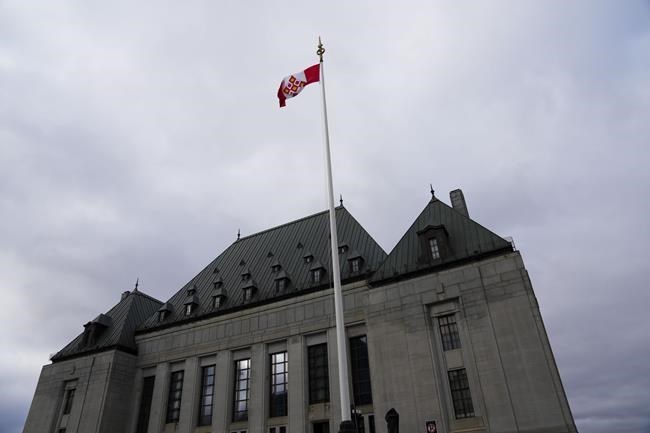OTTAWA — The Supreme Court of Canada says it set aside manslaughter and firearm convictions because of an unwarranted delay in a man's trial caused by the Crown.
In reasons released Friday for a decision made from the bench last month, the top court said the net delay of about 35 months violated Dia 'Eddin Hanan's Charter right to be tried within a reasonable time.
Hanan was charged in the shooting of two people in December 2015.
His jury trial was slated to begin in Windsor, Ont., in November 2018 but didn't get underway until October of the next year. The defence had offered to proceed by judge alone to speed up the process, but the Crown refused.
Hanan applied for a stay of proceedings, arguing his constitutional right to timely justice had been breached.
Under a framework established by the Supreme Court in the 2016 R. v. Jordan case, an unreasonable delay is presumed if proceedings — from the criminal charge to conclusion of a trial — exceed 30 months in superior court.
The trial judge ruled the delay was justified due to transitional provisions of the new time-limit regime.
Hanan was convicted of manslaughter, discharging a firearm with intent to wound and possession of a restricted firearm without a licence. The Ontario Court of Appeal upheld the convictions, finding no violation of his Charter rights.
In its reasons, a unanimous Supreme Court said the parties could not have reasonably relied upon the pre-Jordan state of the law after Jordan had been decided in 2016, nor did they, as they consciously scheduled a trial within the new ceiling.
The focus for the delay should instead have been on the extent to which the parties and the courts had sufficient time to adapt, Justices Suzanne Côté and Malcolm Rowe wrote on behalf of the court.
The delay beyond the ceiling was due not to a lack of time to adjust to the new circumstances, the court concluded.
Rather, it can be attributed to the Crown's refusal to agree to a trial by judge alone, despite being warned of the possible consequences of delay and despite Jordan having been decided almost two-and-a-half years earlier.
"Were it not for the Crown's decision, the trial would have occurred within the ceiling. This clearly demonstrates that there was enough time for the parties and system to adapt," the judges wrote.
"We would therefore allow the appeal, set aside the convictions, and order a stay of proceedings."
This report by The Canadian Press was first published May 5, 2023.
Jim Bronskill, The Canadian Press




